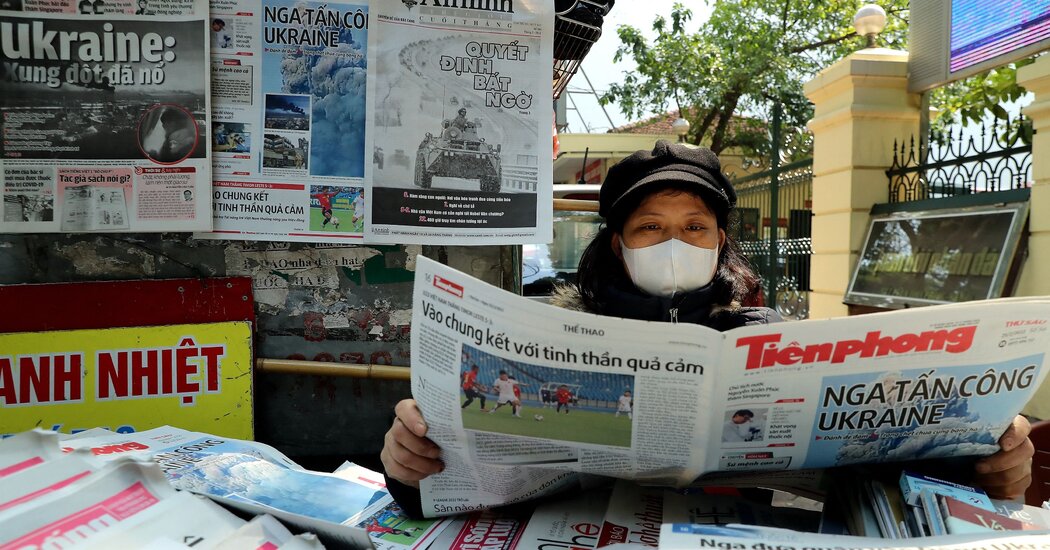
“When I started to look carefully at war, I saw that the first to die is the truth,” Mr. Caetano said, citing unfounded claims circulating online, such as that Ukraine has hired actors to pretend they were injured and that it maintains biological weapons laboratories funded by the United States.
In China, state media has done much to bolster false stories about what is unfolding in Ukraine.
Outlets have republished official Russian propaganda without verification, including false reports that Ukraine had been using civilians as human shields and that President Volodymyr Zelensky had left Kyiv.
While Chinese officials have not explicitly endorsed the Kremlin’s actions, they have framed the invasion as a rational decision by Russia to resist aggression from the West, and specifically from the United States.
Zhang Han, 37, has been an avid consumer of that messaging. Mr. Zhang, a programmer at a technology company in the southern Chinese city of Shenzhen, said he was initially shocked by Mr. Putin’s actions. But he said he also empathized with the Russian leader’s desire to absorb Ukraine and pointed to China’s ambition to unify with Taiwan, the self-governed island that Beijing has long claimed as its own.
“Of course, I pity the situation of Ukrainians and hope that the war can end soon,” he said. “But that’s the mind-set of a big country.”
In Vietnam, state authorities have also attempted to control the narrative about the war. Two editors for a Vietnamese online magazine and a state broadcaster said they were issued directives on reporting on the war that included reducing the extent and frequency of coverage, and banning the word “invasion.” Both asked to remain anonymous for fear of government reprisals.
Vuong Quoc Hung, a 36-year-old stockbroker from Hanoi, said he grew up watching documentaries and films on national television about the Soviet Red Army heroes who battled Nazi Germany during World War II. That made him fall in love with Russia, he said.




